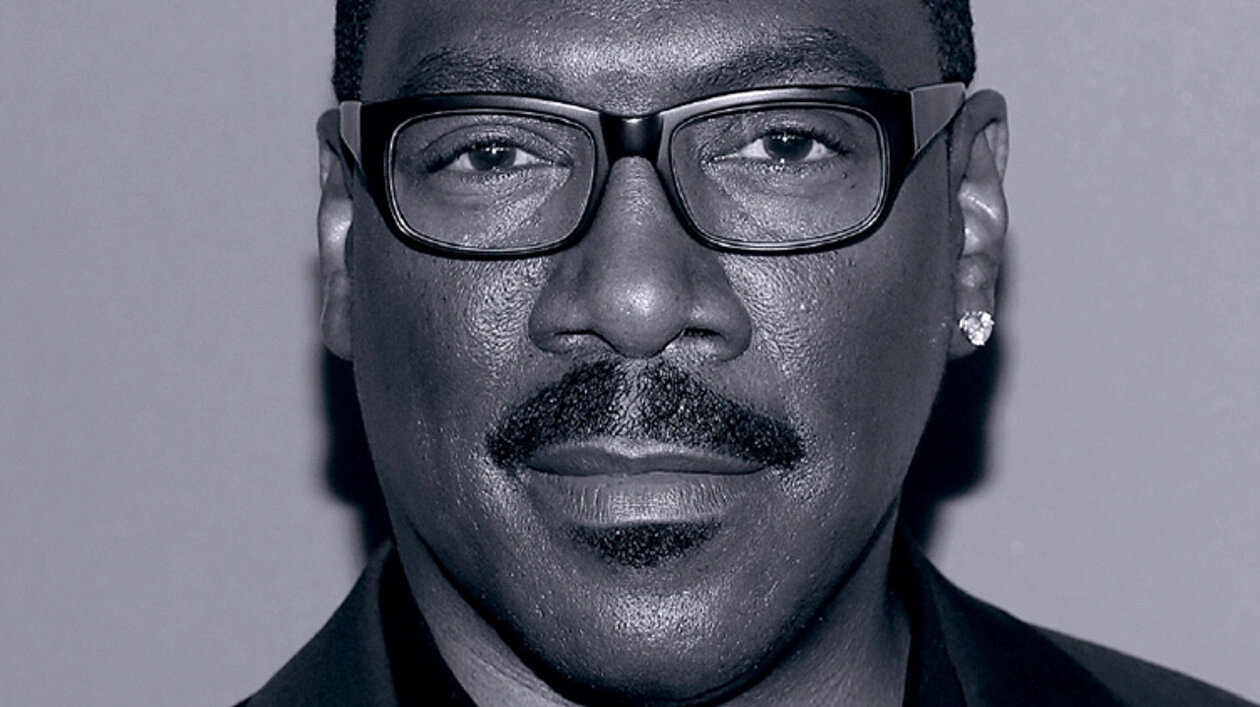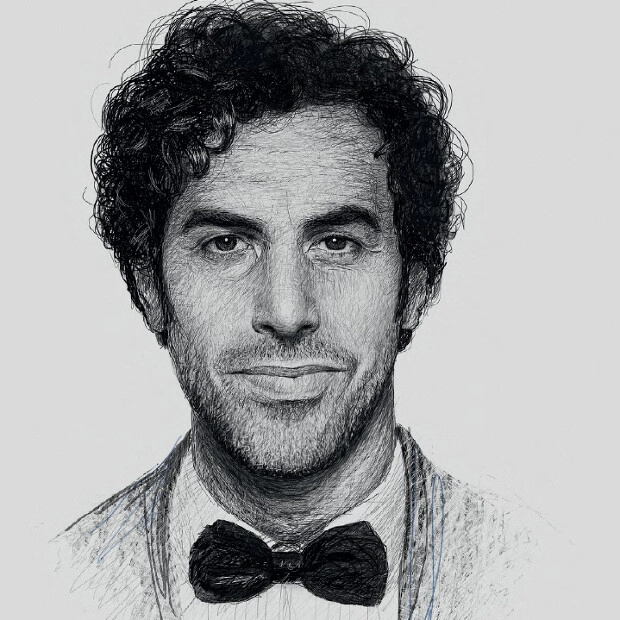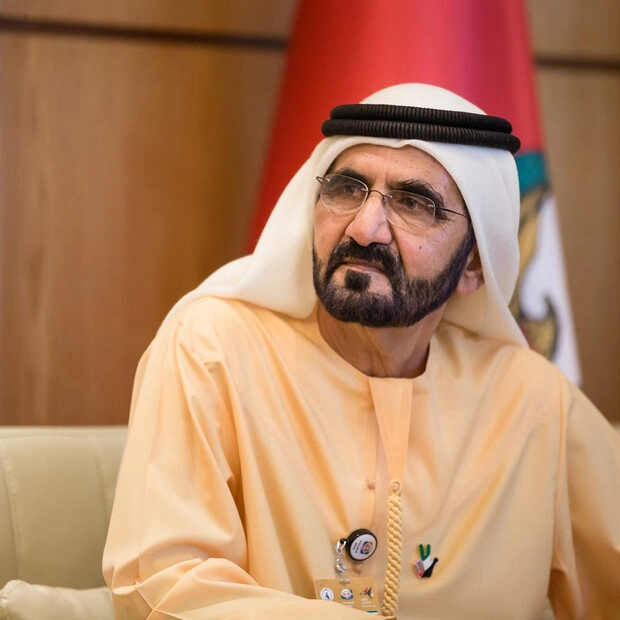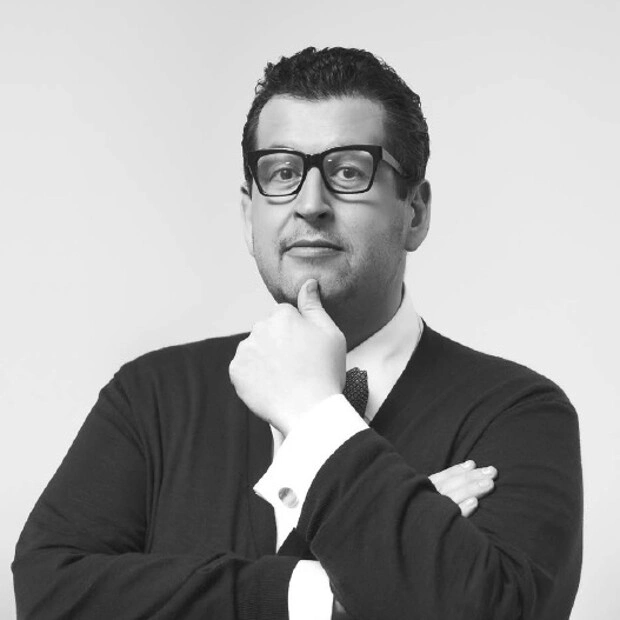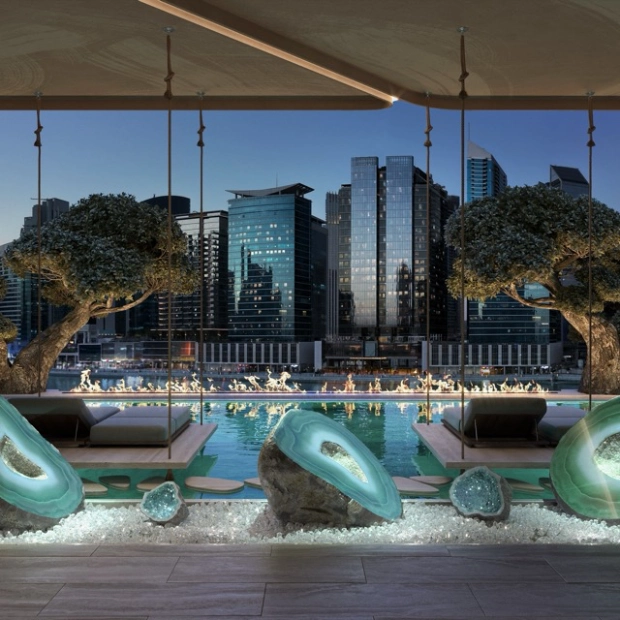Interview — Nelle Holmes
It’s been 33 years since the iconic comedy Coming to America was released. It is still the film to watch if you feel like cheering up and having a hearty laugh. Meanwhile, the dialogues in My T Sharp Barber Shop have long become popular memes. In Russia, the film has been as great a success as in America. Everybody loves it thanks to the special inner workings that Eddie Murphy, talking about Coming 2 America, reveals to our Hollywood correspondent Nellee Holmes.
Nellee Holmes: When you hear the word ‘Africa’, what words come to your mind?
Eddie Murphy: What words when I hear the word ‘Africa’? Well, that's the mother country. All things start in Africa. That's the cradle of humanity. That's where it all starts.
N.H.: What is your connection with Africa? Do you remember the first time you went there? What did you feel?
E.M.: The first time I went to Africa? I've never been to Africa, no. And when we made this movie, what's supposed to be Africa was the rapper Rick Ross's backyard. We used his house to make the castle. He has 300 acres of property, so we were able to make it look like we were on the African plains, but we weren't.
N.H.: I hope Rick Ross does not have lions in his backyard?
E.M.: No, we brought the elephants. No, actually, those are CGI stuff. But if he wanted to have lions and such like wildlife in his yard, his place is big enough to have them all running free. He has a huge piece of property.
N.H.: I’d like to ask you about patience. Filming the original Coming to America, you were young and spent five to six hours in that makeup chair getting all the various components on you. Did you have more patience and energy back then than you do some 30 years later? What’s the makeup process for you now? Is it different in any way?
E.M.: It hasn't changed and is just as arduous as it was back then. It's still six hours in a chair when you're doing a makeup. It hasn't gotten any easier. Every time I film a makeup movie, I say, “I'm never gonna do another one!” but eventually, wind up doing it again. As to patience, it's rewarding when everything’s done right, i.e., each makeup is done right, we got some good material to work with, and I got a good character. So, when it comes on the screen, you see a wholly different person but not me. That's very rewarding for me as an actor. I love it. My favorite “dish” is when somebody, after watching my movie, not knowing it was me, and hearing that the old Jewish guy was Eddie, goes, “What? Do you really mean it was him?” and decides to watch the movie again. That's my favorite thing.
N.H.: Who do you see looking at those different versions of the character now?
E.M.: I see real people. The genius Rick Baker created these very realistic makeups. When other people do makeup movies, you know it's the actor in a makeup, and it's a part of the… They're hiding out in the makeup or something, so you can look and see, “Oh, yeah, that's really so and so, and I'm going along on this ride.” When I myself use makeups in movies, they have to be like real people. If a person's sitting down to watch the movie you got to… I don't want them to realize it's me. I want them to think it's a real person. So, when I look at them, I see real people. I see Saul, not me. When I have a makeup on, I talk like my character. I become that person with that makeup on, and while it's on, I’m him but not me.
N.H.: Not only is this film a funny comedy, but it’s also a story about fatherhood. Could you talk a little about being a father? How much has your fatherhood changed you? What are you like as a father now?
E.M.: Well, that's a lot of stuff. Hell, I was 27 years old and had no children when I made the original Coming to America. Now, I'm 59 and have TEN children. Yes, I have changed so much and am a different person now. Being a dad, I think, has some influence on how you respond to different things. Some stuff I wouldn't even have reacted to
20 years ago might as well make me cry now. So, being a dad kind of rounds you out emotionally.
N.H.: How much handson are you with your very young children? Do you change diapers?
E.M.: I don't change diapers, but I am pretty hands-on. I do everything but changing diapers. I'll tell you why I don't: I just don't think I would do a good job, and my kids deserve something better than that.
N.H.: You’ve got a pretty romantic and cosy setting, with candles and everything, behind you. What has the lockdown been like for you? Have you been coping with it all right? Are you doing OK? Has humour been an essential element of your dealing with this crisis? What have your reasons for laughter been during this period?
E.M.: Well, humor is an important part of everything. With me, humor is from the inside out because I'm very funny, even when I'm not on camera. I'm just a funny person. As to the lockdown, like everybody else, you spend this time with your family. And more time than you usually get to. I'm a homebody anyway. A lot of the stuff we had to get used to I didn't have a problem with: distancing, wearing a mask, and all that. I was one step from doing all that anyway. So, that wasn't hard for me to adjust to. The whole thing brought everybody together, not just me and my family. It's made everybody closer to the people around.
N.H.: Is it usual for you to have candles around you? Do you find it comforting?
E.M.: Last week, I had other things, a bunch of trophies and stuff, on this shelf, but I felt I was looking like a showoff, so I took those down and put the candles up. Now, it doesn't look like I'm showing off. It looks like a church.
N.H.: Let’s talk a little about Beverly Hills Cop IV. I know that Adil El Arbi and Bilall Fallah, a BelgianMoroccan duo, codirected the film. I’d like to ask you about your first meeting and talking to them, and if Adil and Bilall surprised you in any way.
E.M.: When I first met them, I thought they were super smart, and their young energy impressed me. We met to talk about Beverly Hills Cop IV before they did Bad Boys For Life actually. Then, when they did the Bad Boys, it was like, “Oh, these are the dudes!” Yeah, they're just smart, talented, and full of energy.
N.H.: In this film, you revisit an old buddy & alias of yours. How has your appetite for revisiting your old characters from, say, Beverly Hills Cop or The Nutty Professor changed? I think you’re the only actor who’s played so many iconic personalities that the next couple of centuries could be spent on sequels.
E.M.: Yeah, I've done so many sequels. I'm used to doing it and do it so much, so revisiting a character is kinda common and easy to do. It's just another day at work for me.
N.H.: I’d like to change the focus and talk about one of your coming films, Triplets, which, according to IMDB, is in preproduction right now. What does it mean to you?
E.M.: Triplets is in a totally embryonic stage, as they're just working out what the script will be like. So, we’re still really far away from it.
N.H.: Looking back at your achievements as an actor, comedian, singer, producer, philanthropist, and family man, what do you feel proud of first and foremost?
E.M.: My family. I have ten kids, and they're all good people and smart too. That's what my biggest accomplishment and legacy is - my children.
N.H.: You created Prince Akeem, Saul, and the barber in both films. How did you come out with all these characters? Are they part of your life experience or pure fiction?
E.M.: An inner-city barbershop is a place where people go to talk about politics and share all the latest stories of everything going on in the neighborhood, and it's funny. I just grew up with all that, so that's where they came from.
N.H.: What about Prince Akeem?
E.M.: The idea of Prince Akeem in Coming to America started with me. 25 years old at the time, I had just broken up with a girl. While on tour, I had a conversation about meeting a girl who didn’t know who I was. I had just got in the business and was only starting to get people to know me. I thought it’d be so great to have a girlfriend not knowing about me. That's where the idea originated.
N.H.: Your wife is from Perth. I wonder if you’ve been to Australia, and if so, what your impressions of it are.
E.M.: I haven't been to Australia yet, but eventually I will go there because Paige is from Australia.
N.H.: Is she forcefeeding you Vegemite? Has she brought anything Australian into the family?
E.M.: She's not force-feeding me Vegemite. It's a little too savory for my palate (laughs), but my kids have been growing up with it. They love Vegemite and eat it all the time.
N.H.: Oh, those kids! How many of them have shown signs of following in your footsteps?
E.M.: Quite a few of my kids have an interest in the arts. Three of my daughters and three of my sons are interested in acting. Two of my daughters write. One of my daughters paints, so, yeah, it's the family business. I'm definitely an artsy dad, and they're in artsy surroundings, so some of my kids are pretty artsy.
N.H.: Back in the '80s, we rushed to watch any film featuring Eddie Murphy coming on the screen. Whenever and wherever you showed up, people went to see you. We were completely unaware there was a dearth of African-American films and a lack of diversity. Now, the world has changed. Do you feel there’s more AfricanAmerican in the pool of talent for you to pull from? How different is your current experience?
E.M.: I started making movies 40 years ago, and there's never been a shortage of people wanting to work with me. There's always been a big pool of talent. I've made different types of movies and am on a very short list of African-American actors with a global audience. Most films African-Americans make aren't successful outside the United States. I’ve always made movies that have universal themes, so when they work in the States, they work all over the world. That hasn't changed since Beverly Hills Cop. If it works here, it works abroad. When it's good, it's good all over my movies.
N.H.: So, what is missing in the African-American films? Why are they not as universally acclaimed as yours?
E.M.: It's not about something missing. It’s all about the stories we tell. We, African-Americans, and I am not derogating, have a lot of dark history, i.e., stories of social injustice, civil unrest, political matters, dark things, and persons that won and lost it all. It’s heavy stuff. So, when we go to the movies, oftentimes, it's not escapism like movies are supposed to be. Lots of times, it's heavy themes that don't go around the world. Say, we're talking about something local, like the African-American Civil Rights Movement, but on the other side of the world, in Japan or Italy, they don't give a shit about the Civil Rights Movement. They have their own local things. So, for movies to go all around the world and be relatable, you have to have universal themes in them, while a lot of ours telling our stories don’t realize it's only local stuff. So, it's not that they don't want to see us. It means they want relatable stories.
N.H.: But there is still a lack of representation or, in other words, a lack of diversity, right?
E.M.: Oh, yeah, well, you know, it's been like that for years and not just for African-Americans but minorities and women. It's always been, you know, a white guys’ business. White men run it. Now having said that, I must say I've never been on the receiving end of that. I have my own little space I carved out. I get to make the type of movies I want to make. You know, when they are successful in the States, they are a success around the world, but it's only me, and not a long list of African-American actors who have a global audience. For the most part, around the world, you guys don't go to see African-American movies.
N.H.: Who or what makes you laugh? Now that we’ve all been locked down lately, who or what’s been humouring you?
E.M.: You know, even though I'm a funny person, I'm not a connoisseur. I see humor everywhere. I see so many new comedians all the time now. Back when I was younger, you could have a record collection and know all the coolest records, as well as all the stuff coming on TV that week and see everything. Now, comedy's become so big, and these new comedians have never been in a TV show or a movie but can sell out The Garden and make, you know, $20 million a year. There’s so much stuff, and it’s often like, “Who is this guy that can sell out The Garden?” I'm an easy laugh. You know what I laugh at the most, though? It’s the show called Ridiculousness. That's a great way
to escape from it all and not to think about anything for a half-hour.
N.H.: What is your real-life sense of humor like? Is it the same as in your films?
E.M.: On the screen, I play extroverts, while in real life I think I'm a more introverted person.
N.H.: Does politics make you laugh?
E.M.: Politics? Actually, I never really followed politics much until the last four years, when I've been watching the show. Does it make me laugh? It has never made me burst out laughing, but I have seen some funny stuff. Politics is a whole world, funny, scary, spooky, and always different. It's like a movie full of everything.
N.H.: Do you keep to a specific diet?
E.M.: No, I don't have a specific diet or something like that. If anything, it's just genetic. I think comedians don't age like everybody else because we laugh so much. I guess laughter is at the center of it. You know, once or twice a week, I have a good belly laugh with tears coming out. Many people have had none of that for years. I know people of my age who graduated with me, looking older than me. Maybe, they don't laugh enough. That's my only explanation.
N.H.: Did you realise this was a way to break barriers doing just that at such a young age? Were you aware of it at the time?
E.M.: No. In the early days, I was just doing it. There was no plan, and I didn't think of it that way at all. I just, kind of, matured into the person that I am now.
N.H.: Looking at you, people see a star and a story of success. In the meantime, your relatives and friends have had experiences different from yours. How does all that affect you?
E.M.: Let's say that just because I didn't have a big confrontation with racism in my profession, it does not mean I walked into Hollywood out of heaven. I'm still a black man, you know. I was born in America and have had all the same experiences everybody else has. Talking specifically about my career, I must say in my acting, doing movies, or being a comedian, race never became a problem. I never had any type of racial conflict or anything like that. But, being African-American, you know, there's no way you can escape facing some shit like that growing up in this country. You are going to have some type of racial conflict to go through. So, I'm not this guy who’s never experienced what my friends and relatives have. I have had the same social experiences.
